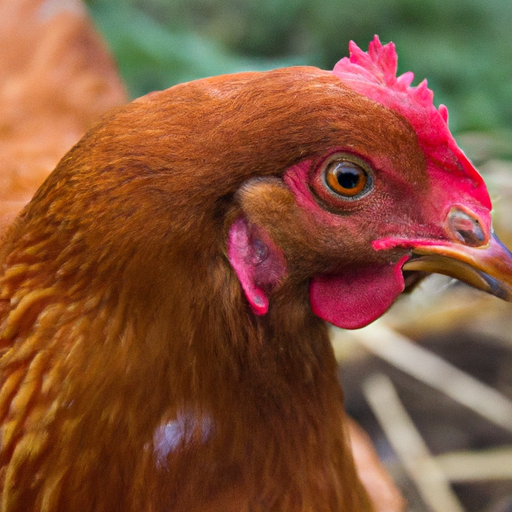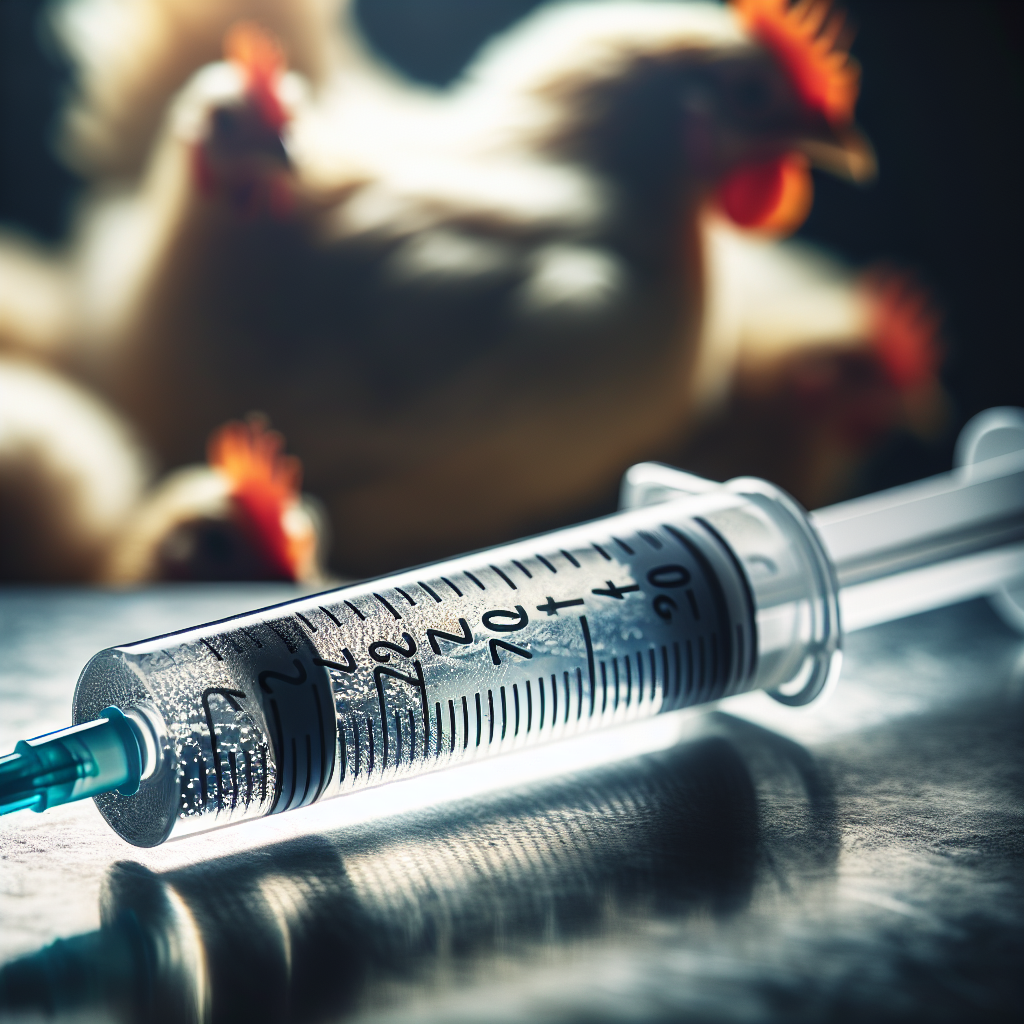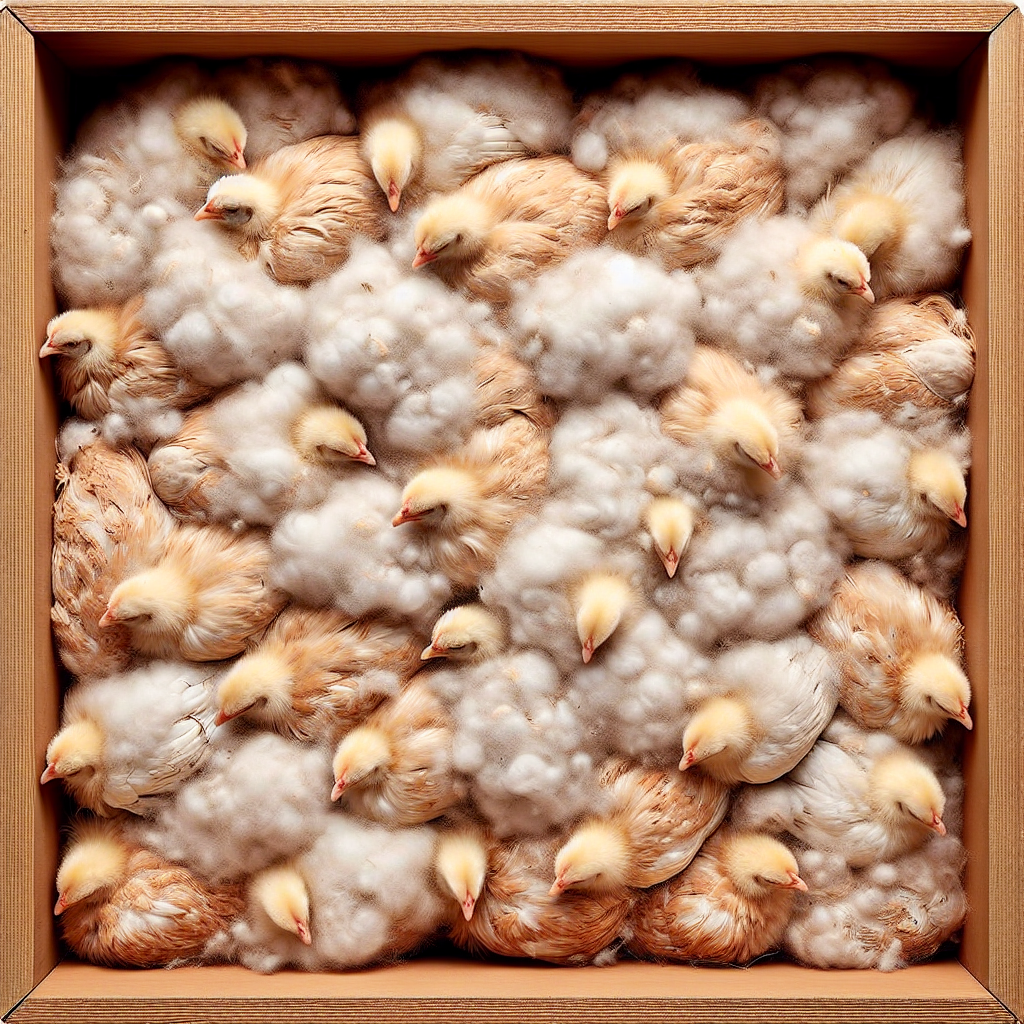If you’re a chicken owner, you may find yourself concerned about the health and well-being of these feathered friends. One common issue that can affect chickens is respiratory illnesses. Just like us humans, chickens can also suffer from respiratory problems that can impact their overall health and productivity. In this article, we will explore the various treatments available for respiratory illnesses in chickens, providing you with helpful information to ensure the health and happiness of your feathered companions. From antibiotics to natural remedies, we’ve got you covered. So let’s dive into the world of chicken health and discover how to keep those little cluckers in the best shape possible! Respiratory illnesses can be a common and troublesome issue for chickens. Luckily, there are numerous treatments available to help alleviate symptoms and promote recovery. From preventive measures to alternative therapies, this comprehensive article will guide you through the different treatment options for respiratory illnesses in chickens.
Prevention
Vaccination
Vaccination is an essential tool for preventing respiratory illnesses in chickens. By administering appropriate vaccines, you can significantly reduce the risk of your flock contracting diseases such as infectious bronchitis, Newcastle disease, and avian influenza. Consult with your veterinarian to determine which vaccines are necessary for your specific situation and ensure proper administration.
Biosecurity measures
Implementing biosecurity measures is crucial for preventing the introduction and spread of respiratory diseases. This includes maintaining a clean and sanitized environment, limiting visitor access, and keeping new birds separate from the main flock until they have been appropriately quarantined and tested. Good biosecurity practices help minimize the risk of respiratory illnesses and enhance the overall health of your chickens.
Healthy diet and nutrition
Proper nutrition plays a vital role in maintaining the immune system’s strength and supporting overall respiratory health in chickens. Ensure your flock has a well-balanced diet consisting of high-quality feed that provides essential vitamins, minerals, and nutrients. A diet rich in antioxidants can help bolster the immune system’s ability to resist respiratory infections. Consult with a poultry nutritionist to determine the best diet for your chickens’ specific needs.
Diagnosis
Clinical signs and symptoms
Detecting respiratory illnesses in chickens can be challenging as they often present with similar symptoms. Watch out for signs such as sneezing, coughing, nasal discharge, wheezing, labored breathing, reduced appetite, and decreased activity. If you notice any of these symptoms, it is vital to take prompt action and consult a veterinarian for a proper diagnosis.
Laboratory tests
Laboratory tests are essential for accurately diagnosing respiratory illnesses in chickens. Samples, such as nasal or tracheal swabs, can be examined for the presence of pathogens, including bacteria, viruses, or fungi. Additionally, blood tests can provide valuable information about the overall health and immune response of your flock.
Veterinary examination
A thorough veterinary examination is crucial for diagnosing and determining the appropriate treatment for respiratory illnesses. Your veterinarian will conduct physical assessments, review clinical signs and symptoms, and may recommend additional tests to confirm the diagnosis. Timely veterinary intervention can help prevent the spread of respiratory diseases and ensure appropriate treatment measures are taken.
Antibiotics
Types of antibiotics
In cases where bacterial infections are present, antibiotics may be prescribed to help combat the bacteria and alleviate respiratory symptoms. Several types of antibiotics, such as tetracyclines and fluoroquinolones, are commonly used in poultry medicine. The specific antibiotic prescribed will depend on the identified bacteria and the sensitivity of the strain.
Dosage and administration
Proper dosage and administration of antibiotics are critical to ensure their effectiveness and minimize the development of antibiotic resistance. Follow the veterinarian’s instructions carefully and administer the prescribed medication as directed. Be mindful of withdrawal periods to prevent antibiotic residues in eggs or meat.
Potential side effects
While antibiotics are an essential tool in treating respiratory illnesses, they do come with potential side effects. These can include a disruption of the normal gut flora, leading to digestive issues and increased susceptibility to secondary infections. It is important to monitor your chickens closely during antibiotic treatment and report any unusual or severe side effects to your veterinarian.
Antiviral drugs
Effectiveness of antiviral drugs
Antiviral drugs are designed to inhibit the replication of viruses and reduce the severity and duration of respiratory illnesses. However, it is crucial to note that antiviral drugs may not be available for every specific viral infection in chickens. Consult with your veterinarian to determine if antiviral treatment is a viable option for your flock’s respiratory illness.
Treatment duration
The duration of antiviral drug treatment varies depending on the specific virus and severity of the infection. While some medications may need to be administered for a few days, others may require more extended treatment periods. It is essential to follow the prescribed treatment plan provided by your veterinarian to maximize the effectiveness of the antiviral drugs.
Possible drug resistance
It is important to note that the misuse or overuse of antiviral drugs can contribute to the development of drug-resistant viral strains. To mitigate this risk, it is crucial to follow your veterinarian’s instructions carefully, administer the prescribed medication at the correct dosage and duration, and avoid using antiviral drugs without professional advice.
Antifungal medications
Common fungal respiratory infections
Fungal respiratory infections, such as Aspergillosis, can significantly impact chicken health. Antifungal medications, such as Amphotericin B or Itraconazole, can be prescribed to treat these infections. However, accurate diagnosis is crucial, as fungal infections may require different treatments than bacterial or viral infections.
Treatment options
Treatment options for fungal respiratory infections may include systemic antifungal medications or local treatments such as nebulization therapy. Systemic medications are typically administered orally and can help eliminate the fungal infection throughout the body. Nebulization therapy involves the inhalation of medication directly into the respiratory system and can provide targeted relief for respiratory symptoms.
Monitoring and reevaluation
During antifungal treatment, it is important to monitor your chickens closely for any signs of improvement or worsening of symptoms. If there is no improvement or a deterioration in their condition, consult with your veterinarian for further evaluation. Adjustments to the treatment plan may be necessary to ensure the most effective recovery.
Immune boosters
Purpose of immune boosters
Immune boosters aim to enhance the chickens’ natural defense mechanisms, making them more resilient against respiratory infections. These supplements can help improve overall immune response, decrease susceptibility to respiratory illnesses, and aid in faster recovery from infections.
Natural supplements
There are various natural supplements available that are believed to have immune-boosting properties for chickens. These supplements may include probiotics, prebiotics, vitamins (such as vitamin C and vitamin E), and herbal extracts like echinacea or garlic. It is important to note that while these supplements can help support immune health, they should not replace appropriate veterinary care and treatments.
Commercial products
In addition to natural supplements, there are also commercially available immune-boosting products specifically formulated for poultry. These products often contain a combination of vitamins, minerals, and other ingredients known to support the immune system. When considering commercial products, ensure they are specifically designed for poultry use and consult with your veterinarian for guidance on the most suitable options.
Supportive care
Warm and clean environment
Providing a warm and clean environment is crucial in supporting chickens suffering from respiratory illnesses. Maintain a well-insulated coop with appropriate bedding to keep the birds warm and comfortable. Regularly clean and disinfect the coop to minimize the spread of pathogens that can further aggravate respiratory issues.
Humidity control
Proper humidity control is essential for chickens with respiratory illnesses. Too high humidity can worsen respiratory symptoms and create an ideal environment for the growth of bacteria and fungi, while low humidity can lead to dry airways. Maintain optimal humidity levels in the coop, typically around 40-60%, to support respiratory health.
Nebulization therapy
Nebulization therapy involves the administration of medication in fine mist form directly into the respiratory system. This method can help relieve respiratory symptoms, open constricted airways, and promote healing. Consult with your veterinarian for proper nebulization techniques and suitable medications for your chickens’ condition.
Nutritional support
Dietary changes
Providing appropriate dietary changes can have a positive impact on the overall health and recovery of chickens with respiratory illnesses. Increase the availability of nutrient-rich foods such as fresh fruits, vegetables, and greens to support the immune system. Consult with a poultry nutritionist to develop a diet plan that meets the specific nutritional needs of your flock.
Vitamin and mineral supplements
Supplementing the diet with essential vitamins and minerals can aid in the recovery and strengthen the immune system of chickens with respiratory illnesses. Vitamin C and vitamin E are known for their immune-boosting properties, while minerals like zinc and selenium are essential for proper immune function. Consult with your veterinarian or a poultry nutritionist to determine the appropriate supplements for your flock.
Tube feeding
In severe cases where chickens have difficulty eating or are too weak to feed themselves, tube feeding may be necessary. This intervention involves administering liquid food directly into the crop through a tube inserted into the esophagus. Tube feeding should only be performed under the guidance of a veterinarian to ensure proper technique and reduce the risk of complications.
Surgical intervention
Examination and evaluation
In some cases, respiratory illnesses in chickens may require surgical intervention. This typically occurs when there are physical obstructions, such as tumors or foreign bodies, causing respiratory distress. A thorough examination and evaluation by a veterinarian will determine if surgery is necessary and the appropriate course of action.
Surgical procedures
Specific surgical procedures for respiratory illnesses in chickens will vary depending on the underlying condition. Common surgeries may involve the removal of tumors, foreign body extraction, or procedures to correct anatomical abnormalities. The specifics of each surgery should be discussed with and performed by a qualified avian veterinarian.
Post-operative care
After undergoing surgery, chickens require diligent post-operative care to ensure proper healing and minimize complications. This may involve providing special dietary requirements, administering appropriate pain relief medication, and closely monitoring the bird’s recovery. Follow your veterinarian’s instructions carefully to maximize the chances of a successful outcome.
Alternative therapies
Homeopathy
Homeopathy is an alternative therapy that aims to stimulate the body’s natural healing abilities. Although controversial, some chicken owners may choose to explore homeopathic remedies for respiratory illnesses. It is essential to consult with a qualified homeopathic veterinarian who has experience in treating poultry and can guide you through appropriate remedies and treatment protocols.
Herbal remedies
Herbal remedies, such as essential oils or herbal extracts, have been used in traditional medicine for centuries. Some herbs, like oregano or thyme, have antimicrobial properties and may help alleviate respiratory symptoms. However, it is crucial to consult with a veterinarian knowledgeable in poultry medicine and herbal therapy to ensure safe and effective use.
Acupuncture
Acupuncture, a traditional Chinese medicine practice, involves the insertion of thin needles into specific points on the body to promote healing and pain relief. Some chicken owners may consider acupuncture as a complementary therapy for respiratory illnesses. To ensure safety and effectiveness, always seek the assistance of a qualified veterinary acupuncturist who is experienced in treating poultry.
In conclusion, respiratory illnesses in chickens can be managed through a combination of preventive measures, prompt diagnosis, and appropriate treatments. Vaccination, biosecurity measures, and a healthy diet can significantly reduce the risk of respiratory infections. Accurate diagnosis, including clinical signs and laboratory tests, allows for targeted treatment with antibiotics, antiviral drugs, or antifungal medications. Immune boosters, supportive care, nutritional support, and, in some cases, surgical intervention or alternative therapies can aid in the recovery process. By understanding the available treatments for respiratory illnesses and working closely with your veterinarian, you can help ensure the well-being and respiratory health of your flock.




